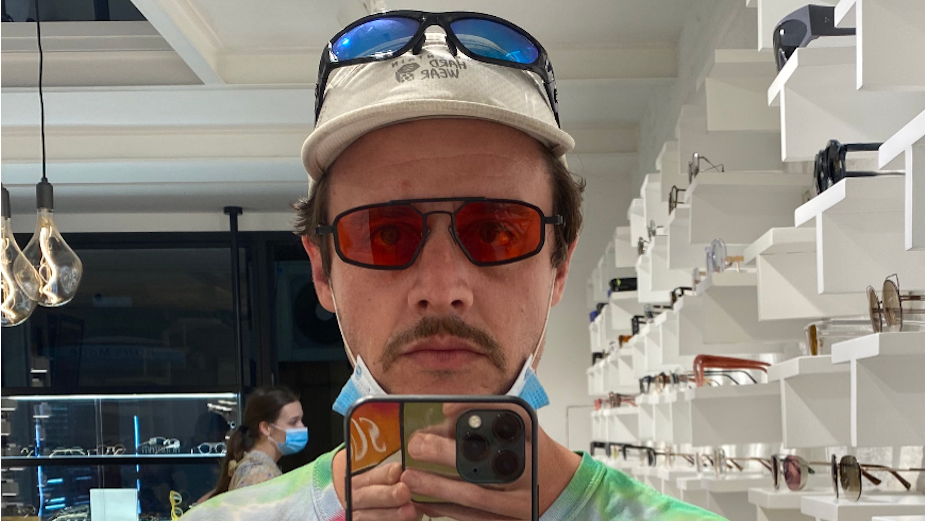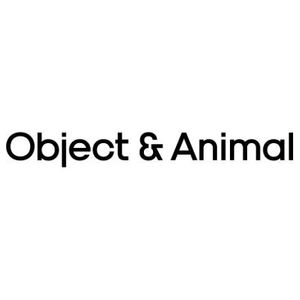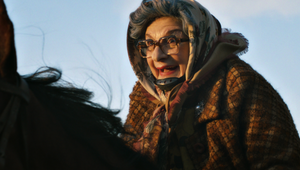
The Directors: Oscar Boyson

Oscar Boyson is a writer, director, feature film producer and partner of Elara Pictures, NY. He’s from the do-it-yourself school of filmmaking and has produced for everyone from Casey Neistat to Noah Baumbach and The Safdie Brothers. A true cinephile with an encyclopaedic knowledge of film and art. Oscar is able to deliver large amounts of information into concise and hugely entertaining short-form content.
He has created the episodic series, Iconic, for M2M and directed films for Estée Lauder, Time, UBS, and UPS. Oscar’s producer credits include Frances Ha and Mistress America, and Good Time and Heaven Knows What.
Name: Oscar Boyson
Location: NYC
Repped by/in: Object & Animal
Q > What elements of a script sets one apart from the other and what sort of scripts get you excited to shoot them?
Oscar Boyson > I want to connect with the material in an authentic way and get excited about pushing the craft or trying things I haven’t done before. A sense of specificity on the page is a big part of that and a sign of a good storyteller. When something reads too generic it’s a lot harder to find a way in.
Q > How do you approach creating a treatment for a spot?
Oscar > Depends on the schedule and size of the job, but I put a lot of time into designing a reading experience that I’m confident whoever’s reading is going to get all the way through to the end. That means specificity, voice, distinction, but also coherence…it should be fun to read, fun to swipe. I keep a giant library of films and try to make a point of using images that don’t show up on Google Image Search.
Q > If the script is for a brand that you're not familiar with / don’t have a big affinity with or a market you're new to, how important is it for you to do research and understand that strategic and contextual side of the ad? If it’s important to you, how do you do it?
Oscar > I like to know everything, so yes it’s important to me. I am a romantic and I love poetry, but that doesn’t mean I’m adverse to looking at the job as a series of communication problems that need to be solved. I’m definitely not interested in answering a question that nobody is asking, so strategy, brand history, the landscape we’re releasing the work into – the more research I do, the more likely I am to hit on the problems we’re really trying to solve. And once you’re there, you can start asking the right questions but from the perspective of unexpected characters. As far as how I actually do the research, depends on the job. But I’m a big reader and love digging through archives, and if there’s brand intel I can glean from the client they’re almost always happy to help.
Q > For you, what is the most important working relationship for a director to have with another person in making an ad? And why?
Oscar > Yikes. Depends on the job – editor, DP, producer, stylist, AD, talent – it's so easy to take the trust for granted, then when you don’t have it you realise how delicate it is. Obviously a trusting relationship with a client can be incredibly fruitful. But its always the same reason: the better the relationship is, the more time you’ll spend doing what you do best and taking those risks that push the ad to a place we’re all proud of.
Q > What type of work are you most passionate about - is there a particular genre or subject matter or style you are most drawn to?
Oscar > I’m inspired by how accustomed we’ve all become to mixing all kinds of different media, but I’d like to see more of that same fearless shifting when it comes to genre, pace, performance. Koreans get it, in their pop music and in their films, but in the west I feel like we’re more inclined to just pick a lane and stick to it. I’m excited to make more work that shows viewers are ready for that.
Q > What misconception about you or your work do you most often encounter and why is it wrong?
Oscar > Probably that I’m only into hyper-cutty, voiceover driven stuff. I’ve always had one foot in movie theatre movies and another in more internet-based work. One in producing, another in directing. It can confuse people that don’t cross over, but it really just speaks to my interest in trying new things and challenging myself with every project.
Q > Have you ever worked with a cost consultant and if so how have your experiences been?
Oscar > No, but I’ve produced everything from commercials to features and having that producer head can be a curse sometimes. Low budget features, in particular, force you to think about what you’re really trying to communicate. And they reward you for finding creative ways to do more with less. Taking a zero off the budget can be the quickest path to the kind of creativity that ends up distinguishing your work from everyone else’s.
Q > What’s the craziest problem you’ve come across in the course of a production – and how did you solve it?
Oscar > When the President of the United States is within a certain radius of NYC, airspace above the city is effectively shutdown to helicopters. I was producing a Jay Z video that intercuts one story in an NYPD helicopter hovering over Brooklyn with a giant spotlight with other characters down on the street. The president decided to visit his home in New Jersey the day of our shoot…there’s too much to explain how we did what we did, but all the proof you need is in the video! There was also a commercial I was editing once that really needed another sequence in the middle of it, and I just used BTS footage from a music video set I was working on. Worked out great!
Q > How do you strike the balance between being open/collaborative with the agency and brand client while also protecting the idea?
Oscar > Best idea wins. It doesn’t matter who it comes from. I want the collaboration framed in a way that allows every decision to be subjected to rigour and scrutiny. Those conversations lead to trust, and trust allows us to take risks and be playful. Obviously once you hit the ground the production needs a strong leader, and experience just tells you which battles are worth fighting. The difference between American and European agencies is pretty striking though, that’s something I’m just learning.
Q > What are your thoughts on opening up the production world to a more diverse pool of talent? Are you open to mentoring and apprenticeships on set?
Oscar > One of my favourite parts of filmmaking is turning people onto it, especially people who have spent their whole lives thinking they have no business working in front of or behind the camera…whether that’s hiring someone off Instagram or working with a musician that’s never composed to picture before, it requires more of you at the beginning but its always worth it. Part of what I was doing with THE FUTURE OF CITIES was about empowering young people, plenty of whom had no film experience, by basically saying “as long as you show up, I’ll work with you. And because we’re in your city, you’re actually the expert here – not me.” The bigger idea is that your point-of-view is more valuable than your technical prowess...so that’s a long way of saying yes. I want as many perspectives around me as possible. Invite that awkward kid watching from the sidelines over to set. Take 10 minutes to help a stranger get that first foot in the door. Pass off jobs to other directors that need them and help sell them in when the client needs a little added confidence.
Q > How do you feel the pandemic is going to influence the way you work into the longer term? Have you picked up new habits that you feel will stick around for a long time?
Oscar > I’ve become an obsessive handwasher and expect that to stick. Sourcing shots from places I couldn’t travel to myself has been a part of my process for a while now though, and I appreciate the way it forces you to not just imagine but actually communicate what you’re after. There’s nothing better than collaborating in person and sharing physical space – I’ll continue to fight for that luxury on set and in the edit whenever its possible to do so safely.
Q > Your work is now presented in so many different formats - to what extent do you keep each in mind while you're working (and, equally, to what degree is it possible to do so)?
Oscar > I think about this all the time – it’s a design question, right? Designing something that’s going to be forced upon viewers before they get to watch what they clicked on YouTube is very different from designing something that audiences have to watch in a cinema before the feature they paid $15 to see begins. In the latter example, you’re in a dark room full of strangers, lights dimmed and phones off. In the former, you’re on your lunch break with a screen full of other tabs and conversations and who even knows what’s happening off-screen. Asking how audiences are going to encounter the work is almost always my first question when embarking on a new project. It can be liberating to design the work as though that question doesn’t matter (and getting a straight answer is rare in my experience), but I get the best results imagining as specific an experience as possible for the viewer. I keep waiting for a filmmaker to make a Netflix that is actually designed with the platform in mind, you know…has anyone done that?
Q > What’s your relationship with new technology and, if at all, how do you incorporate future-facing tech into your work (e.g. virtual production, interactive storytelling, AI / data-driven visuals etc)?
Oscar > I don’t read about new tech and get inspired to come up with a film that would allow me to use it, but if it’s the right tool for what we’re trying to do, I’m never going to shy away. I like using technology designed for other fields and finding a less obvious application in what I’m making…that can be an easy way to ensuring it doesn’t just look like every other video out there.
Q > Which pieces of work do you feel really show off what you do best – and why?
Oscar > I think this new campaign, BALLANTINE’S: NO WRONG WAY, has a lot of what I do best: packing a ton of life into a 60 second anthem that’s as authentic as it is fun to watch. I did a ton of street casting and found tons of the people you see in the spot on Instagram. I think you feel that stuff on the screen. I also usually do my own voiceovers, rewriting and rerecording the temp almost every day during the edit. I hate it when the energy of a script doesn’t make the jump to VO, so I was pleased we found a narrator I could work closely with to ensure we held onto the energy of my temp.
THE FUTURE OF CITIES for its humanism and sincerity – there’s also a continuity to its curiosity that overpowers everything else and allows us to work with a huge range of imagery, from studio shot slickness to amateur phone videos. And I’m proud of the way we took ideas that might seem boring or inaccessible and made them exciting to engage with – the film started an organic conversation that I get emails about to this day.
MOCA: JEFF KOONS for synthesising a ton of information, artwork, voices, and perspectives into one coherent mini-essay. It’s almost like a song.
I love SLEEPY JONES: L’ISOLA DI SLEEPY JONES (and the sequel!) for its style and nostalgia, but also for the high-concept/low-budget combination that I’ll always be drawn to. The script I had wanted to make fell through but we had a camera and a suitcase full of pyjamas, so I just came up with that idea on the spot and made it with two friends.













